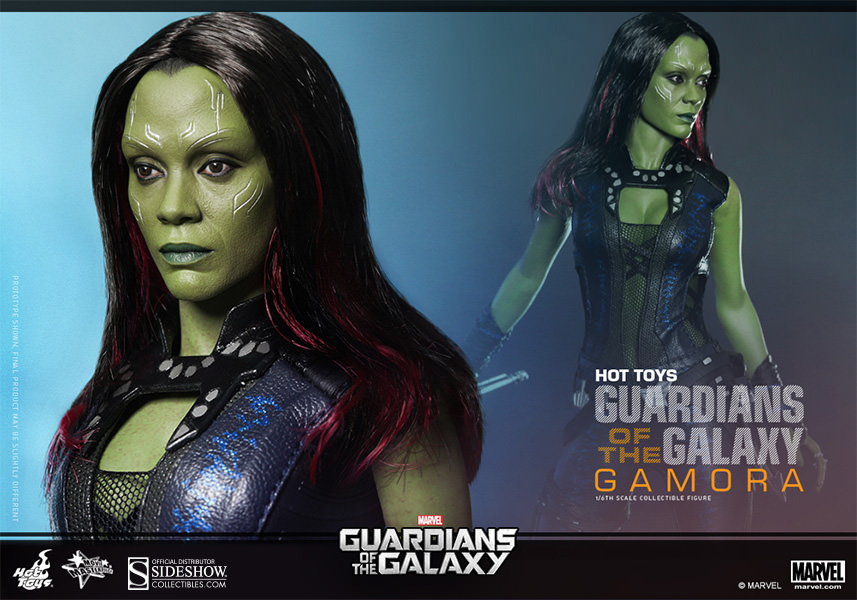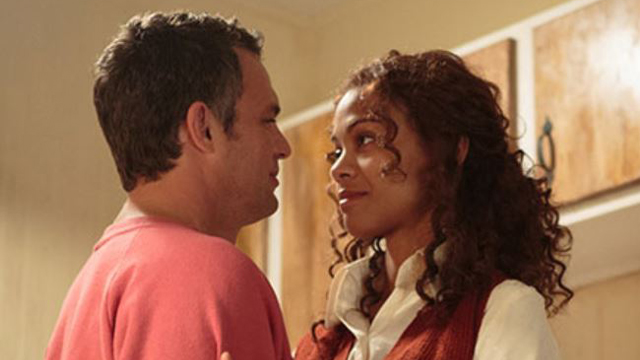The cinematic universe has proven to limitless to Zoe Saldana, who in recent summers has played pivotal roles in the new “Star Trek” movie franchise and last year’s mega blockbuster “Guardians of the Galaxy.”
This summer, though, the acclaimed actress is keeping things down to Earth, quite literally, with the family drama “Infinitely Polar Bear.” But while her role is decidedly different than Lt. Uhura and Gamora, Saldana said signing on to the film was more a matter of happenstance than a conscious decision to play opposite ends of the movie spectrum.
“I wish I was ‘The Man with the Plan,’ but I’m really not that kind of artist. I never have a whole year lined up,” Saldana told me in a recent interview. “Every now and then a project will come, whether it comes in small independent package or in a big studio package, and if I like the story and if I feel like it’s going to be a wonderful experience to be a part of it, then I’ll start pursuing it.”
Now playing in select cites and expanding throughout the U.S. in July, “Infinitely Polar Bear” tells the story of Maggie (Saldana) and Cam (Mark Ruffalo), a once happily-in-love couple with a pair of young daughters (Ashley Aufderheide and Imogene Wolodarsky), whose marriage eventually falls apart over Cam’s inability to deal with his manic depression.
Separating from Cam and struggling as a single mother with the girls in small apartment in Cambridge, Massachusetts, Maggie, stressed and broke, comes up with a solution: If she can attend business school at Columbia University and earn an MBA in 18 months, she can ensure a better life for daughters. However, she can only do it with the help of Cam — that is if he can take responsibility of his daughters as well as himself — while she’s away in New York.

Saldana said once she read the script by writer-director Maya Forbes, she was desperate to do the film.
“I just kept reading the script over and over again — it was so beautiful and spoke to me on so many levels. It was real, so I wanted to be a part of it and do the character justice because it was so special to me,” Saldana said. “It deals with a very heavy subject with bi-polar disorder. So many people are affected by it, yet we know so little about it. Maya captured it in a very beautiful way because not every scene is about Cam’s condition. Every scene is about her father and her mother, and her sister and herself. The dad has this condition, but he’s a great guy and he tries hard every day. That’s what I loved.”
If that wasn’t enough, Saldana, 37, said stories of father-daughter relationships always resonate with her on a personal level.
“I lost my dad when I was very young, so I’m a sucker for stories having to do with daughters and fathers. I just had to be a part of this,” said Saldana, who just had twin sons in November with her husband, Marco Perego.
“Infinitely Polar Bear’s” approach is unique in that, while the film is set in 1978, it doesn’t draw any attention to Maggie and Cam being a bi-racial couple. In fact, apart from one brief scene where Maggie discusses her black heritage with one of her daughters, race is not mentioned throughout the entire picture. Saldana, whose mother is Puerto Rican and late father was Dominican, said she’s glad Forbes didn’t turn the film into a racial discussion.
In a day an age where the subject of race is broached on many different levels daily, I told Saldana how refreshing it was to see Maggie and Cam not portrayed as a black parent and white parent (and nearly 40 years ago, no less) struggling with their marriage and who both love their children; but simply as parents struggling with their marriage and who both love their children.
“I’m so happy that you mentioned that. I always wait for people to mention race in order for us to talk about it,” Saldana told me. “Race is not a subject that I spend a lot of time with because I don’t want to, unless it’s done in the right way. That’s what I loved about this film, because it reminded me of the way I grew up. My father was much darker than my mother, but it was never about that growing up at home. They never mentioned anything about color unless we were painting on paper or deciding what we wanted to wear. It was never about the skin color of people.”
Saldana said Forbes grew up in the same way, which gave the film the proper insight of not making an issue out of race.
“We tell more stories where people make an issue out of it, and generally those stories are by outsiders looking in,” Saldana observed. “But the people who were in it — and whatever the case may be, whether it had to do with their race, gender or growing up with two parents of the same sex — it was never about that. When you’re in it, you’re not talking about it, you’re simply living it.”
Effectively, that’s how Saldana could tell how Forbes’ script was authentic — something the actress doesn’t get with every screenplay she reads.
“It’s something I always point out to writers. I can tell with stories when a person of a certain culture is writing about a foreign culture because they point out on every page and every scene something about the foreign culture,” Saldana said. “It’s like when a white writer writes about one character is black. They will have a white character at some point make a joke or a statement about their color. You can tell who the writer is without knowing them.”
But when the writer does get it right, like Forbes does with “Infinitely Polar Bear,” it’s an exhilarating feeling, Saldana added.
“When we’re talking about art and actors, we’re hired to be chameleons. We’re hired to do a job and if we do it well, you’re not going to see me, you’re going to see the character I’m trying my hardest to bring to life,” Saldana said. “So when that can be seen or pointed out, or I’ve been told that I’ve accomplished that, then I know that the writer has gets it and I’m on the right path. It just makes me feel really good to be doing what I do.”



